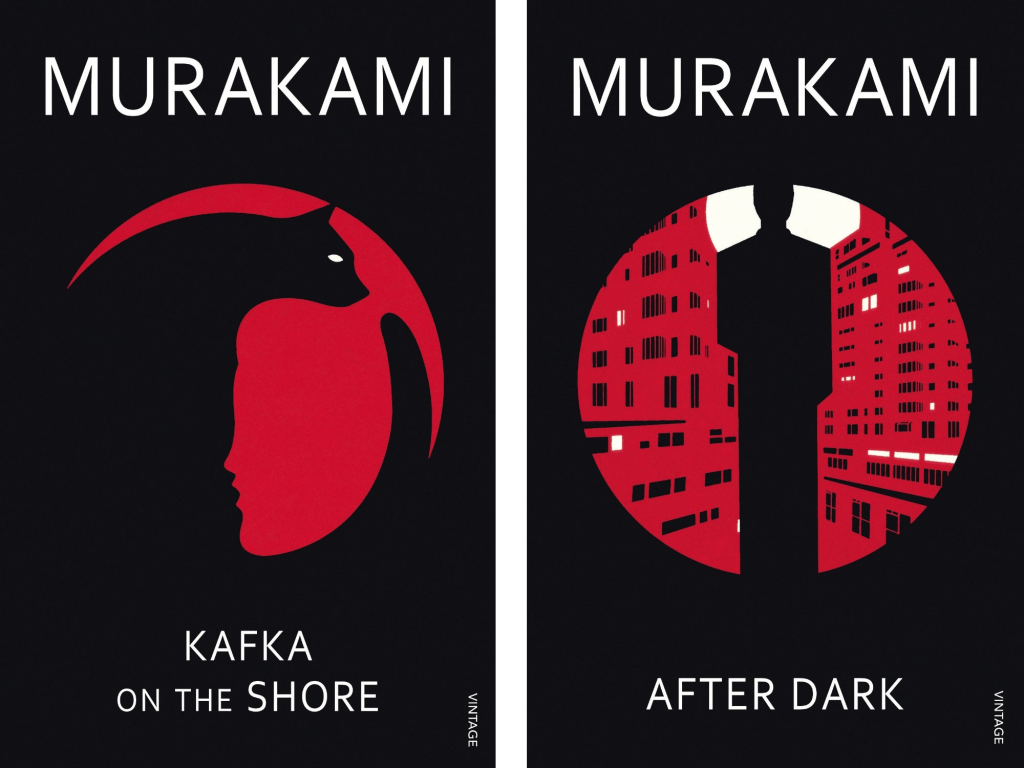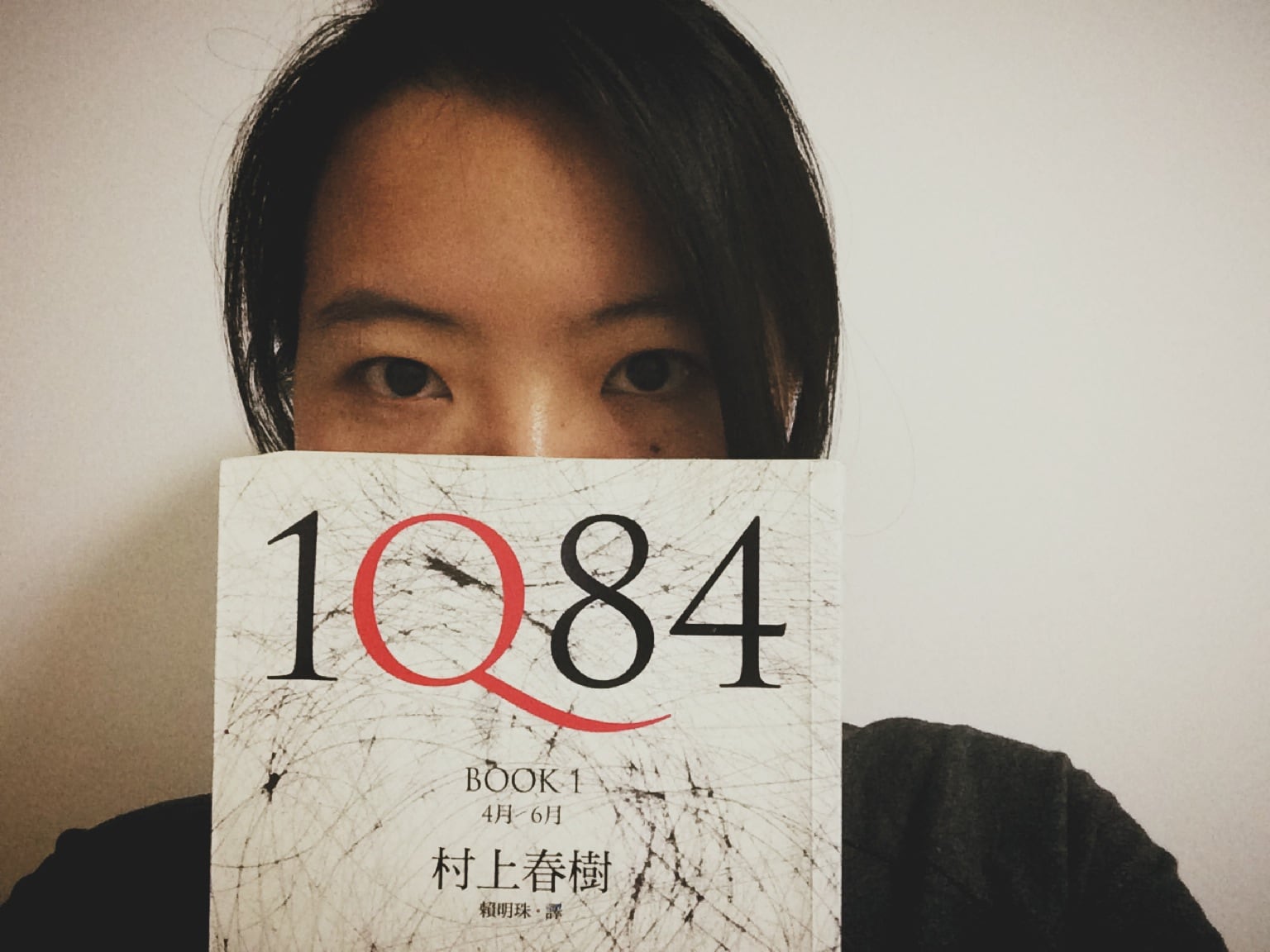Walking home the other evening, a man passed me on a bicycle with a cat riding in the front basket. While this wasn’t terribly unusual, what took me aback was that both he and his cat were wearing matching stripy jumpers and top hats (think Dr. Seuss). Even stranger was the fact that nobody else bat an eyelid.
A year after moving to Japan I’ve slowly begun to grow accustomed to Japanese eccentricities and how, even within this highly hierarchical society, outliers are accepted without question.

For me, the surreal novels of Haruki Murakami (村上 春樹) have been the most telling about some of the psychological and philosophical depths of modern Japan. Underlying each story is always a feeling of isolation and lacking one’s “essential” self.
“I understood that something was missing from me. Something absolutely critical, though I did not know what. The kind of depth of emotion a person needs to make music that will inspire others.”
Sputnik Sweetheart (スプートニクの恋人)
In his novels fantasies, dreams, and mysterious coincidences are often intertwined without the need to differentiate which are which. There is a tacit acceptance of reality and the awakening of the consciousness from a world which has been lost.
Seen superficially, in this postmodern consciousness, “people live in a world where anything is possible and nothing is important” (Toshio Kawai). People are adrift between the mythological world of the past and the postmodern hyper-consumerist society we live in today.
This dissociation between a fabled lost past and a cold alienating present is possible because modern consciousness or self-awareness, in the Western sense of individualism, has never been established in Japan where collectivism or interdependence still dominates.
Put another way, Japan didn’t experience the same transition from pre-modernity to modernity as in the West, when scientific methods were developed which led people to abandon the shroud of myth under which pre-modern peoples lived. It remained in this “mythological” isolationist state till later.
The difference between the raw truth of history and warm glow of nostalgia (or conversely the promise of utopia) in the resulting psyche has become so blurred that fantasy is placed at the same level as reality with both being accepted equally. In this sense both fact and fiction can coexist without any conflict within a collective value system (to a certain degree).
“Our memory is made up of our individual memories and our collective memories. The two are intimately linked. And history is our collective memory. If our collective memory is taken from us – is rewritten – we lose the ability to sustain our true selves.”
1Q84 (いちきゅうはちよん)
To use a crude analogy, imagine a person who has time travelled from the past to the present and is lost. They cannot go back and in order to remain sane, they cling on to vague memories of their past by decorating their apartment in the style they remember. Their apartment might bear some passing resemblance to 1920 but it’s still 2014 outside.
In this postmodern consciousness, anything goes but at the same time, everything becomes arbitrary and dissociated from its roots or place in time. Paradoxically by searching for what is real, we have ended up living in Disneyland.
It is perhaps his ability to reflect the postmodern state of the Japanese psyche which can be partially attributed to Murakami’s success and why it’s ok for a middle-aged man to dress as a schoolgirl or a woman to repopulate an abandoned village with life-sized dolls resembling the dead and departed…
村上春樹と日本人の心
ある夕方家路を歩いていると、前かごに猫を乗せた自転車の男が私の横を通り過ぎた。これ自体は取り立てて珍しいことではなかったが、私が驚いたのは、その男と猫がそっくり同じストライプのジャンパーとシルクハットを身に着けていたことだった (ドクター・スースを思い浮かべてみて欲しい)。さらに奇妙なことに、誰もが顔色一つ変えずに通り過ぎていったのだ。
日本に来て1年、私は徐々に日本の風変わりさにも、そして、この高度に階層的な社会の中であっても、はみ出し者が疑問もなく受け入れられる様子に慣れ始めている。
私にとって村上春樹のシュールな小説は、現代日本の心理的、哲学的な奥行きについて最も雄弁に語っているものだ。どのストーリーの根底にも、常に孤立感や「本質的」自己の欠落の感覚が流れている。
「わたしは自分からなにかが失われていることに気付いたの。それがなにかはわからないけれど、絶対的に大切ななにか。人を感動させる音楽をつくるのに必要な感情の深さのようなもの。」
スプートニクの恋人
彼の小説では、しばしばファンタジーや夢、ミステリアスな偶然の一致が、どれがどれと区別されることなくより合わされていく。そこには言葉に表れない現実の受容と失われてしまった世界からの意識への気付きがある。
一見すると、このポストモダンな意識の中では「人々は何もかもが可能で、重要なものは何もない世界に住んでいる」(河合俊雄)。人々は過去の神話的世界と今日私たちが生きているポストモダンな超大量消費社会の狭間を漂流している。
寓話的な失われた過去と冷たくよそよそしい現在の間にあるこのような断絶が可能となるのは、集団主義や相互依存が依然として支配的な日本で、西洋で言う個人主義の中で成立した現代意識あるいは自己認識が成立したことがないからだ。
別の言い方をすれば、日本は西洋で起こったのと同じ前近代から近代への移行を経験しなかった。西洋ではその時、科学的手法が開発され前近代に生きていた人々を覆っていた神話の帳が取り払われたのだ。日本はその後までこの「神話的」孤立主義の状態にとどまった。
結果として精神の中では、歴史のありのままの真実と郷愁の暖かな輝き (あるいは逆にユートピアの約束) の間にある違いは曖昧なものとなり、ファンタジーが現実と同じレベルに置かれ、等しく受け入れられるようになっている。このような意味で、事実とフィクションの双方が集団的価値体系の中で (ある程度において) 矛盾することなく共存できている。
「僕らの記憶は、個人的な記憶と、集合的な記憶を合わせて作り上げられている。その二つは密接に絡み合っている。そして歴史とは集合的な記憶のことなんだ。それを奪われると、あるいは書き換えられると、僕らは正当な人格を維持していくことができなくなる」
1Q84
大雑把に例えるならば、過去から現在へタイムトラベルしてきた人が途方に暮れているところを想像してみるといい。過去に戻ることができず、正気を保つためにアパートの部屋を覚えているスタイルで飾って過去の曖昧な記憶にしがみつく。アパートの中には1920年との見せかけの類似性が生まれるかも知れないが、それでもアパートの外は2014年なのだ。
このポストモダンな意識の中では、何もかもが可能だが、同時に何もかもが偶然で、やがてそのルーツや居場所から切り離される。何がリアルかを探ることにより、私たちは逆説的に、ディズニーランドに住んでいることになってしまう。
日本人の精神のポストモダンな状態は、部分的に村上の成功によるところがあり、また中年男が女子校生の格好をすることや、ある女性が廃村に死者や今はなき人達に似せた等身大の人形を住まわせることが受け入れられている理由でもある。おそらくは、そのポストモダンな状態を映し出したのが村上の才能だろう。


Reply